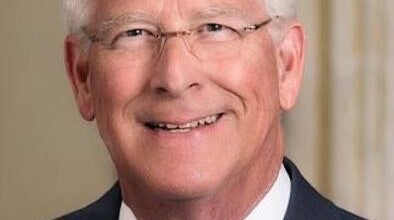Why doesn’t media cover wars?
Published 10:42 am Friday, December 9, 2016
Surely some of you will recall those strange nights during the big war when the family stayed glued to the radio. Most of the news was about the actions of the day. That’s where we first heard the words “Normandy” and “Iwo Jima” and “Bastogne.” Those snippets about the war were punctuated by repeats of “The Glenn Miller Show” or “Lucky Strike Goes to War” commercials.
Nowadays almost no reporting is broadcast about the many fronts our country is at war on. Perhaps that dearth of reporting is a fear the media got from the reaction to the painful coverage of soldiers dying in Vietnam. Our people are content to send those young men and women into harm’s way, but don’t want to watch what happens to them.
Somewhere there is a sixth grader today who has never known a time when we weren’t at war–although he probably would only be dimly aware of that fact if he doesn’t have family members in the service.
Television is much more ready to air footage of happy moments, such as parents showing up at an elementary school to surprise their children who didn’t know they were back in the States. But little time is spent reporting military funerals unless some group protests them. Then we may see lines of motorcycles lining a parade route to keep certain church people from mounting their protest. And cameras are usually not in airports to record citizens being disrespectful to returning warriors.
Why is it so hard to smile at someone in uniform and maybe say “Thank you”? A handshake might seal the moment of gratitude. Of course, they don’t all return, those men and women who volunteer to go and represent our country.
An old Marine buddy sent me this email recently: “We are asking everyone to say a prayer for ‘Darkhorse’ 3rd Battalion 5th Marines and their families. They are fighting it out in Afghanistan & they have lost 9 marines in 4 days. It would be nice to see the message spread if more could pass it on. Nothing in the media about these guys because no one seems to care.”
By now the 3rd of the 5th may be home, but I bet more of them came in body bags. Here are some who did: Justin Allen, 23, Brett Linley, 29, Matthew Weikert, 29, Justus Bartett, 27, Dave Santos, 21, Chase Stanley, 21 Jesse Reed, 26, Matthew Johnson, 21, Zachary Fisher, 24, Brandon King, 23, Christopher Goeke, 23, Sheldon Tate, 27. Just names. Just ages. We won’t remember them. And we won’t see the grief in those 11 families when a sergeant hands them a neatly folded American flag next to their graves.
When you turn on the tube tonight, keep an eye out for any notice of such sad returns. Sadly our world is more interested in championships and issues of disrespect on college campuses. When the big games, such as the Super Bowl comes on, you’ll see live shots of soldiers watching the same in tents in hostile country. Interesting that television sports shows troops on the line, but television news seems oblivious to their conditions.
That reminds me of the comedienne, Martha Raye. On a USO tour in Nam, she was in a chopper that had to pick up some wounded and dead. Her Army escort told her not to look. Instead she indicated the tab on her shirt collar that showed she was a lieutenant colonel in the Army Reserve and a registered nurse. She stayed on the copter and treated men till they got to base. Then she worked for hours in the operating room.
When society tells us not to look, maybe we should follow her example.
TJ Ray is a retired professor of English at Ole Miss.





